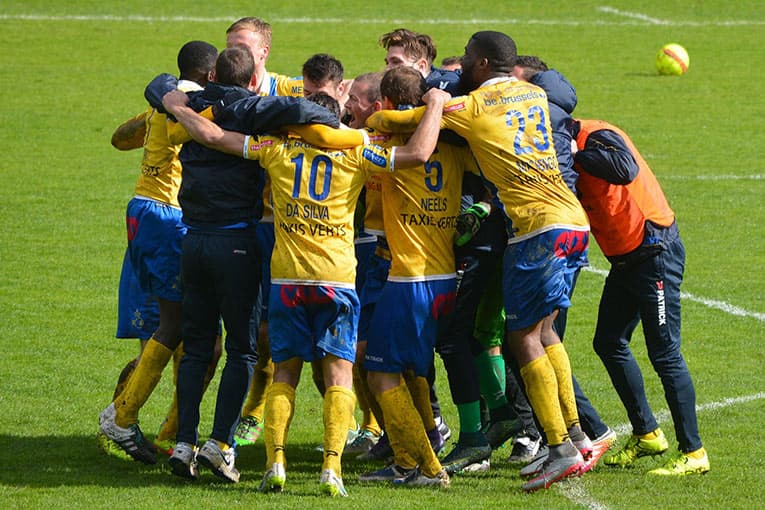Intrinsic motivation, or the inner drive that comes from within an individual, plays a critical role in achieving success in sports. Unlike extrinsic motivation, which relies on external rewards or punishments, intrinsic motivation is a powerful force that comes from a genuine love and passion for the sport. Cultivating intrinsic motivation in athletes is essential for long-term success and can be achieved through various techniques and strategies employed by coaches, parents, and athletes themselves.
Techniques to Build Intrinsic Motivation in Athletes
- Autonomy: Allowing athletes to have a sense of autonomy and control over their sports training can foster intrinsic motivation. Giving athletes choices, allowing them to set their goals, and involving them in decision-making processes can help them develop a sense of ownership and responsibility, leading to increased motivation.
- Mastery: Helping athletes develop their skills and achieve mastery in their sport can boost intrinsic motivation. Setting challenging but achievable goals, providing regular feedback, and offering opportunities for skill development and improvement can fuel an athlete’s desire to excel and increase their intrinsic motivation.
- Competence: Building athletes’ self-confidence and competence in their abilities is crucial for intrinsic motivation. Providing opportunities for success, recognizing and celebrating achievements, and helping athletes overcome challenges can enhance their belief in their own abilities and strengthen their intrinsic motivation.
- Passion and Purpose: Helping athletes connect with their passion and purpose in their sport can ignite intrinsic motivation. Encouraging athletes to reflect on their values, interests, and long-term goals can help them develop a sense of purpose and motivation beyond external rewards, leading to sustained intrinsic motivation.

Intrinsic vs. Extrinsic Motivation in Sports
Intrinsic motivation is distinct from extrinsic motivation, which relies on external rewards such as trophies, money, or praise. While extrinsic motivation can be effective in the short-term, it may not sustain long-term athletic success. In fact, extrinsic rewards can sometimes diminish intrinsic motivation if athletes become overly dependent on external rewards for their motivation. On the other hand, intrinsic motivation is self-sustained and can lead to greater enjoyment, commitment, and persistence in sports.
The Psychology of Intrinsic Motivation in Sports Performance
Intrinsic motivation is deeply rooted in psychological factors. According to Self-Determination Theory (SDT), a widely studied psychological theory of motivation, three basic psychological needs contribute to intrinsic motivation: autonomy, competence, and relatedness. When these needs are satisfied, athletes are more likely to be intrinsically motivated and experience greater well-being, performance, and satisfaction in their sport.
Building Intrinsic Motivation in Young Athletes
Cultivating intrinsic motivation in young athletes is crucial for their long-term engagement and success in sports. Parents, coaches, and educators play a pivotal role in fostering intrinsic motivation in young athletes. Some strategies to build intrinsic motivation in young athletes include:
- Encouraging free play and exploration to develop a love for the sport.
- Emphasizing skill development and personal improvement rather than winning or external rewards.
- Recognizing and celebrating effort, progress, and achievements to boost self-confidence.
- Providing opportunities for autonomy, decision-making, and goal-setting to develop a sense of ownership and responsibility.
- Building positive relationships and a supportive team environment to enhance relatedness and motivation.

Strategies for building intrinsic motivation in sports teams
Building intrinsic motivation in sports teams requires a multifaceted approach. One key strategy is to create a supportive and positive team culture that emphasizes autonomy, mastery, and purpose. This can be achieved by allowing athletes to have a say in team decisions, providing opportunities for skill development and improvement, and instilling a sense of purpose and meaning in the team’s goals. Another effective strategy is to set challenging but achievable goals that align with the athletes’ personal interests and values. This can help athletes stay engaged and motivated to improve their performance. Additionally, recognizing and rewarding athletes’ effort, progress, and achievements can boost their intrinsic motivation by reinforcing their sense of competence and autonomy.
The benefits of intrinsic motivation for athletic performance
Intrinsic motivation, or motivation that comes from within, has numerous benefits for athletic performance. Firstly, athletes who are intrinsically motivated tend to have higher levels of enjoyment and satisfaction in their sport, which can lead to increased commitment and perseverance in the face of challenges. Intrinsic motivation also promotes a growth mindset, where athletes view failure and mistakes as opportunities for learning and improvement, rather than as threats to their self-worth. This mindset can enhance resilience and mental toughness, helping athletes to bounce back from setbacks and perform at their best under pressure. Furthermore, intrinsic motivation has been linked to increased creativity, self-regulation, and overall well-being, which can contribute to long-term success and fulfillment in sports and other areas of life.
How coaches can foster intrinsic motivation in their athletes?
Coaches play a critical role in fostering intrinsic motivation in their athletes. One important strategy is to provide autonomy and choice to athletes, allowing them to make decisions about their training, competition, and goal-setting within appropriate boundaries. This can help athletes feel a sense of ownership and control over their own development, which can enhance their motivation and engagement. Coaches can also focus on building competence and mastery by providing opportunities for skill-building, feedback, and deliberate practice. Encouraging athletes to set challenging but realistic goals that are aligned with their personal interests and values can also foster intrinsic motivation by giving athletes a sense of purpose and direction. Moreover, coaches can create a positive and supportive team culture that values effort, improvement, and sportsmanship, and recognizes and celebrates individual and team achievements.

The impact of intrinsic motivation on long-term athletic success
Intrinsic motivation plays a crucial role in long-term athletic success. Athletes who are intrinsically motivated are more likely to persist and persevere through challenges, setbacks, and failures, which are inevitable in the competitive world of sports. They are also more likely to continue their involvement in sports beyond their competitive years, as they derive satisfaction, enjoyment, and fulfillment from the process of training and competing, rather than solely from external rewards or outcomes. Intrinsic motivation can also contribute to athletes’ overall well-being and mental health, as it promotes a positive mindset, resilience, and self-regulation. Additionally, athletes who are intrinsically motivated are more likely to develop a lifelong passion for sports, which can lead to continued growth, learning, and success in their athletic pursuits, as well as in other aspects of their lives.










